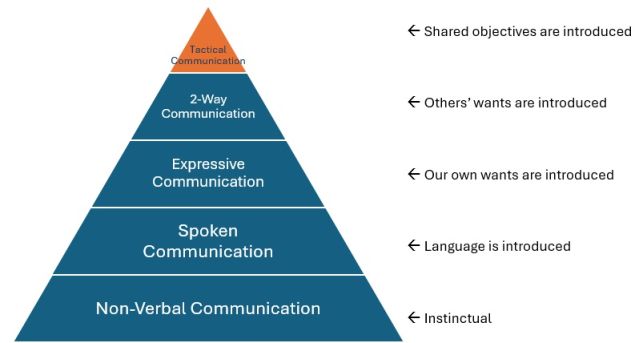Persuasion
How to Talk So That People Want to Listen
A recovering magician reveals attention-grabbing secrets.
Updated June 5, 2024 Reviewed by Ray Parker
Key points
- Make yourself disappear: Audience first, last, and always.
- Saw your brain in half: Observe and adapt in real time.
- Predict the future: Plan for their needs and your outcomes before starting.
Co-authored by David Reich
There are 8 billion people in the world, and everyone wants to be heard.
How do you communicate so that people want to hear what you have to say?
In a word, magic.
My co-author, David Reich, is a fellow recovering magician and speaker, also bent on the idea that we can connect and communicate better than we do.
Sure, most of us have been communicating since birth. Noise, crying, and hand gestures are all primarily attention-gathering techniques. Then we learned language, but talking is not exactly communicating, is it? Communication is a skill that is like an onion. Just when you think you've learned it completely, you discover another layer. (Oh, and it'll make you cry.)

This post is about getting to the top of the communication pyramid (without crying.) Here's Reich, a speaker and trainer for some of the top companies in the world (including IBM), with three tips for communicating on purpose:
1. Make Yourself Disappear. As a recovering magician, I have experienced that when you think first about your audience, you can design more effective communication that is perceived the way you want it to be received.
Getting their attention is the first step. It's easy for me to pull out a deck of cards. People enjoy performances and will naturally tune in. But in business, social settings, and interpersonal relationships, how do we get through? The answer is to find their motivation. Why are they there in the first place? What do they want? Answer that, and you’ve got half the battle already won. Susan Hunt, founder and CEO of Surge Growth Consulting, said, “People don’t spend enough time identifying where the win for the audience is.”
We identify people's wins by listening. It seems simple, but as Hunt goes on to say, “Organizations are not doing enough to focus on communication skills, especially the listening ones.”
2. Saw Your Brain in Half. Here’s another magician’s secret: Think while others are talking.
Expert communicators are always thinkin. Thinking about what they need to get across, influence, or teach. Thinking about others' motivation for listening. Monitoring and thinking about how it’s landing. Thinking about what the other person is not saying. You almost need to split your brain.
This will feel very awkward at first. You may feel a little guilty, as if you’re not listening because you’re thinking about these other things. However, now you’re actively listening.
Before you know it, it will become second nature to pay attention to their needs, think about your message, and assess how it’s going. You'll be able to dynamically adapt your approach to bring even the most difficult conversation to a successful conclusion for everyone involved. You will experience more meaningful and successful connections in all of your conversations, in business, and in life.
3. Predict the Future. The best way to predict the future is to choose your actions in the present.
Hunt summed up a common communication problem when she said, “Salespeople fall back on just blurting out everything they know.”
"Blurting" isn't exactly an advanced communication technique. Just because you need to say it doesn't mean they need to hear it. The opposite of "blurting" is "planning in advance." In casual conversation, it makes sense not to plan things out in advance. However, with business presentations, sales calls, and even important interactions having nothing to do with business, without forethought, the conversation can fail before it begins.
Communication is not a soft skill. True tactical communication is not a skill at all; it's a series of skills, and they can be learned.
Like any new skill, it will feel unfamiliar at first. The important part is to maintain your authenticity throughout. This isn't a moral or ethical commentary (although that's important, too); it's a tactical one. Authenticity is simply more effective. But there's a catch.
Jérôme Selva, and angel investor in sustainability tech companies and former senior executive at IBM, DocuSign, and Pega, said, "People are drawn to authenticity. One cannot be authentic without showing vulnerability, and while not everyone has the level of self-confidence and self-esteem allowing them to be vulnerable, this can be learned.”
It can indeed be learned, but it takes training and it takes practice. However, with awareness and application of these techniques, anyone can become a better communicator, realizing more meaningful and successful interactions in every facet of life. Now that's real magic.
References
For a communication tools checklist to help with your planning, click here.




